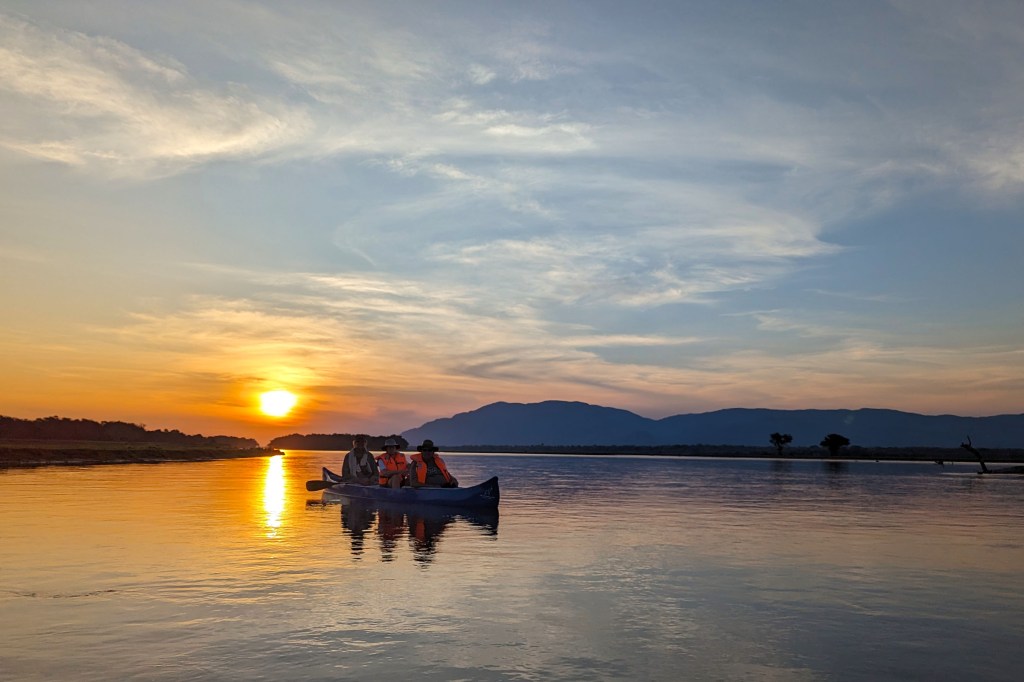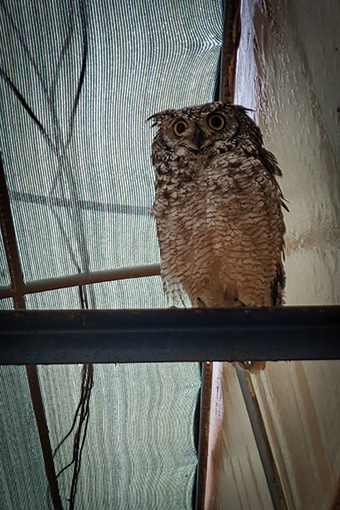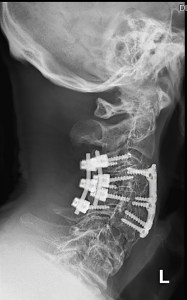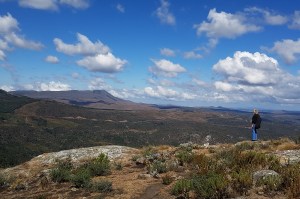26th December 2023
Hello Herman,
I am starting this while waiting for guests to arrive for lunch – my wife is an inveterate entertainer so needs little excuse to get friends around and of course today is a holiday so that’s what we are doing. Not sure when I’ll get to finish…
It’s an el Niño year so rainfall has been erratic so far; a heavy fall in October and then nothing for six weeks so crops are not looking great for those who don’t have irrigation available. There is a lot of fuss and bother in the various weather groups on various social media platforms whenever rain is forecast and then much soul searching when it doesn’t happen. People forget that forecasting is far more accurate than a few years back, even in this part of the world, and that hey, we get droughts in southern Africa! We have had 3 good years in succession and are due a drought, so all is normal in that respect.
I guess I could be cynical and say that the incompetence and corruption that we see all around us are also just about normal for this part of the world too. The road to my work is being resurfaced as we speak, and we are delighted but I fear there is an ulterior motive. The President has an interest in a housing development out beyond my business, and I think that is a prime motivation. Just by chance it goes past a big rubbish tip project that one of his sons has taken over. It looks like it’s being run properly, now we just need to get the city council to collect our garbage on a regular basis. Roads elsewhere in the city are in a dismal state and it’s not uncommon for local communities to take up the challenge and fill in the potholes on their own initiative.
I have just read in an article in The Economist that Indonesia built 300,000km of roads in the last 10 years. It is of course a vast country, bigger than the USA, but there’s an example here that our government could follow.
Zimbabwe is still in the bizarre situation of having two currencies: our own dollar and the US dollar. The local dollar is treated with contempt by all except the government who have just brought out a proposed budget with LOTS of zeros involved (the street rate for conversion is around 7,000 local dollars to the US dollar – officially it’s 6,000). Various members of parliament refused to vote for the budget to pass unless, amongst other demands, they got new 4×4 Toyota Landcruisers so that they could get over bad roads to visit their constituents. Nobody pointed out that the roads were such a mess in the first place due to the inefficiency and corruption. Fortunately, there were other bad ideas in the proposed budget that were also ditched – an annual tax on houses over a value of US$100,000 being one of them. Who was going to do the valuation was never revealed and quite how they were going to get around bribing the evaluators was not discussed either.
My business plods along. It pays the bills and that’s about all. We are charging less than we were in 2014 largely due to the proliferation of small seedling nurseries around town whose quality is dismal and who almost certainly don’t pay tax and cut a lot of other corners, but we cannot compete with their prices. I suspect a lot of people either don’t know what a quality seedling is or don’t care. Our core customers are commercial farmers and I think most of them do appreciate our commitment to quality – well that’s what one told me last week!
Of greater concern is a building project encompassing two neighboring farms in the form of a giant wall. The farms have been “acquired” by Grace Mugabe, wife of the late president, and word is she wants to have a 700-house project built on the enclosed 400ha. The wall is quite something (it has been nicknamed The Great Wall of Pomona after the area) – it’s not visible from space but is from 5,000m altitude on Google Earth. It is 3m high, has a reinforced concrete core and a course of bricks on the outside and inside. I asked a constructor what it might cost, and he suggested US$300-400 per metre. Given that the whole structure is 9km long that’s at least $27 million! The enclosed area is a rough rectangle but the property on which my business is located is a triangle jutting into the northeast corner. The big question is: what will they do when they get to the triangle, will they go around (an extra 500m), or will the wall cut the triangle off? Grace Mugabe is close to the President so wields disproportionate power and probably could just take the property if she felt like it. Perhaps she will force my landlady to sell the property, so she gets the title deeds? We will find out within the next 3 months or so when the wall will get to our boundary.
Despite the poor performance of the Zimbabwe economy the building sector is booming. Likely it’s due to money laundering. Al Jazeera TV did a documentary series (“Gold Mafia” in 4 parts) on this and explained that gold was being exported illegally, mainly to Dubai, by politically well-connected fat cats who were then bringing the cash back with the tacit approval of the President who is taking a 15% cut. The money is then invested in construction projects. Indeed, the suburbs are thick with construction projects of various descriptions – apartments, shopping centres, restaurants – which are often approved without the consent of residents. One of my cousins is in a street which is fighting the proposed construction of a Chinese restaurant. The Chinese are our friends so it’s almost a given that they will get permission.
We are cursed in this country with a wealth of minerals, especially gold. It’s just about everywhere you care to dig. My brother came out from the UK in October and as part of our travels we took a trip through the village where my mother lived after my father’s death. It was established as a gold mining area at the end of the 19th century. The commercial scale miners have long since moved on but the small-scale miners are everywhere and the place is a rubbish tip. One can only but wonder about the mercury pollution and mining safety. Health and safety are not concepts they care about.
The countryside is still largely beautiful. We got invited to an old school friend’s safari camp on the Zambezi River in Mana Pools National Park. I guess it’s about 200km downstream of Kariba Dam. While the game was not as plentiful as it usually is at that time of year due to unseasonal rains, we still had a great time in a beautiful part of the country. Drifting down the Zambezi in canoes at sunset was memorable – crocs and hippos notwithstanding!

Earlier this year I had a bit of an “episode” early one morning. I can’t remember much about it but thought I should go to my doctor about it. She thought it was probably just what is known as Transient General Amnesia (TGA) but given my age thought it worth a spate of tests just in case it was something else. I had mentioned it to some friends of roughly my age and they both said they’d experienced it. Indeed, after much prodding, imaging and blood taking that conclusion was reached. The physician at the final consultation was impressed with the state of my health, structural issues notwithstanding, and commented; “Well, whatever kills you in the end it won’t be your heart!”. I wasn’t sure if that was good news or not – I am of the age now that how I “go” has become a subject of some importance and going quickly is the preferred option.
The degeneration of the structural issues necessitated a lower spine operation in April. It was deemed successful by the surgeon, but it necessitated 3 weeks of bed rest which have had a lasting effect on my mobility. The general anaesthetic also had a lasting effect in the form of POCD (post-operative cognitive dysfunction) which also causes episodes – a sense of disconnecting with the world which the physician said would eventually pass.
It’s New Year’s Eve now and fortunately it has stopped raining! Such is the erratic nature of the climate we find our selves in. The experts tell us it’s all symptomatic of climate change i.e. it’s becoming more extreme though I’d hesitate to attribute a few days of exceptional weather to that just yet.
So, what can we expect from the New Year? You have and election coming up, the Olympic Games are in Paris, the war will continue in Ukraine – the cynical French expression plus ca change, plus c’est la meme chose does come to mind!
Hope ’24 is a good year for you…
Andy











The end-of-summer garden
11 04 2021Aerial view of part of our property and house
It is the end of summer as I write this, the rains have come to and early end, and the garden is drying out and losing the vibrant green. The borehole has sadly not recharged enough to offset the previous 2 years of sub-normal rainfall so already we’ve had to start buying in water. This season’s rainfall was about average at just over 700mm so it’s been a good year for the garden.
We have 3 rainwater tanks of 5,000 litres each so for four months over the rainy season we were self-sufficient and the swimming pool has remained full thanks to the water harvesting system from the roof (blue pipes). We are being a bit optimistic by leaving the pipes in place but for the last 2 years we have had significant rain in April. Curiously we have had municipal water this month, albeit only a trickle, it’s been enough to keep the swimming pool topped up to the point where it can be filtered. It’s not to be relied upon as drinkable so it’s just as well that the borehole flow is good enough to supply drinking water.
That’s Zak lying next to the corner of the kitchen garden. He’s my three-legged Rhodesian ridgeback. You can find his blog here. That’s the remains of a cardboard box he’s lying next to – a dog toy. Not his, he’s so over that sort of thing, but Roxy or Tia’s. They are the others in the Roberts’ pack.
The solar panels we added and then upgraded a year after we moved in. It’s a total of 3,300 W which is more than sufficient to power anything we need during sunlight hours and the batteries can easily carry us through overnight if the day has been clear. The mains power supply is notoriously unreliable during the rains which is also the season of most cloud so we make sure we turn the mains on at night, to recharge the batteries, just in case. We use approximately US$1 a day of mains electricity.
The solar water heater is essential for any household in this climate. It’s so efficient that at this time of year the water frequently boils during the day. We do occasionally have to boost the heat with mains during overcast spells but it’s a comparatively rare occurrence – get one if you can.
Fuchsia on the verandah
Fuchsias, ferns and other shade loving plants thrive on the verandah which we added after moving in. The previous owners had zero interest in the garden and the verandah was just a concrete floor and some ugly walls which came down as soon as we had the money. In Zimbabwe we have fantastic weather (contrasted by an equally dismal economy) so it makes sense to spend as much time outside as possible.
Palms were an early acquisition to block out a very ugly electricity supply pylon. They have grown well and mostly fulfilled their purpose.
The veggie garden was also a new development on a vacant piece of the garden previously occupied by the remains of a car port. The garden shed was a car workshop. Veggie gardens are a bit of a luxury given that we have to buy water in and they don’t like waste water as we found out. Still it’s nice to go into the garden and select a succulent broccoli for supper
Mantis on a rose
Most of the roses came with us from the farm. Unfortunately they don’t always get the attention and water they need but can be spectacular.
A swimming pool was not on the list of essentials when were looking for a property. They are nice to have and I use ours regularly in the warmer months but they are a money sink in chemicals and this one leaks which is a pain. Despite lots of excavation and probing I’ve yet to find a leak. It will have a cover on it soon to reduce evaporation.
The avocado tree is a bone of contention. It doesn’t produce very good avocados and I have the means to top work (graft onto the existing tree) some really good quality cultivars. It means that it must be cut back and then for a few years will cast minimal shade. Marianne is allergic to avocados so she’s only in it for the shade but we have plenty of other trees that we planted after moving in (14 though we have cut down 6 that were in poor health) that are shaping up well.
View of the house looking north
Top amongst these is the Acacia (now Vachellia) abyssinica which has grown at least to 8m in the four years we have been here. We didn’t realize that it had been planted in the soak-away from the servants’ quarters and it grew so fast that it its second year it was knocked flat by a strong wind. A strong pole support for a year saw a full recovery and it’s already showing the flat top growth typical of its common name “Nyanga flat-topped acacia”.
The mulberry tree was inherited. It is prolific in production and growth. The latter is easily controlled by pruning and whilst I do really like mulberries, by the end of the season I’ve had enough. There’s only so many one can eat.
If it weren’t for the cottage we probably would not have bought the property. The main house was not in a good state and we gutted it of the lifting parquet flooring, repainted inside and out and re-tiled the bathrooms. The kitchen is still waiting. The house dates from 1960 and was built by a friend’s father and uncle. The cottage is relatively new and was built by the previous owners for their parents. It didn’t need much renovation and we lease it out. We will possibly use it when we retire and rent out the house. That’s a long way off, one doesn’t retire early (or on time by First World standards) in Zimbabwe unless one is financially secure and we are not.
Sabi Star or Impala Lily (it’s not a lily)
The kitchen garden is the site of an old garden shed in which was stored all nature of old engine oils and unknown substances. We tried using the soil but it had been poisoned so gave up and now everything is in pots or a custom-built flower bed of bricks. It’s home to kitchen herbs, lavender and an assortment of annual flowers.
I’ve always wanted a water feature and so the fish ponds were the result. They were stocked with some small gold fish types and various other fish that I sourced from my friend Gary in the border town of Mutare. There are even some sword-tails that can only have got there by mistake as I didn’t buy them. They are supposedly tropical fish but have proliferated in water that can get quite cold in winter.
A succulent of sorts
The fish ponds are surrounded mainly by aloes and other succulents that are hardy enough to survive with minimal watering. They’d better be hardy as they are not getting much water this coming year.
The main succulent garden (top picture) is situated in a part of the garden that has truly dismal soil. It’s full of aloes and other succulents that must do as they can to survive. Aloes are indigenous to Africa and the Arabian Peninsula so they should be OK. This year they have put on quite a show so far.
A showy cluster of aloe flowers
Sunbirds are nectar feeders and normally love aloe flowers but so far we have seen few. Maybe it’s because the garden has only become colourful relatively recently. We wait and hope.
Cosmos
Cosmos are also left to their own devices in the succulent garden. So far they have managed well. They survive well enough in the wild in the higher rainfall areas of Zimbabwe. Apparently they were introduced in horse feed to South Africa during the Anglo-Boer War. These were snaffled from an uncollected customer’s order at the nursery. One of the perks of being the boss.
Daisy-of-sorts
This is another uncollected order. It’s a daisy of sorts, we’ll see if it has what it takes to survive in the succulent garden.
Hoverfly on a daisy
Perhaps not surprisingly the insect life in the garden is not prolific and yes, I am frequently looking for photo opportunities. This daisy is something of a magnet for hover flies. Superficially resembling a bee it’s known as a bee mimic of which there are several. I do make an effort not to use “heavy” agro-chemicals on the garden to the point that the roses have suffered so I put it down to the newness of the garden.
The lawn is drying off and will in time go completely brown. It isn’t of course dead – come the next rains it will revive remarkably quickly. The kitchen garden will take a knock but be kept going by the waste water from the washing machine. Other ferns and things on the verandah will be kept alive no matter what. We’ll just have to hope the next rainy season is a good one and recharges the borehole but nothing is guaranteed in this part of the world – especially not the weather.
A gazania in the kitchen garden – fate uncertain.
The neighbours – I haven’t mentioned them. The one to the west has a husband who is a retired international cricket umpire. She makes ends meet by growing veggies for restaurants from the seedlings I supply her. We’ve never met the one to the north but I do have his phone number. I cannot show their gardens for privacy reasons but you’ll just have to take my word for it that there’s nothing illegal going on that I could see which was just about everything from the drone’s vantage point.
Comments : 6 Comments »
Tags: avocado, fuschia, mantis, rains, Zak
Categories : flowers, News & Various, photography, Social commentary